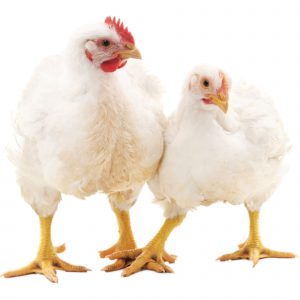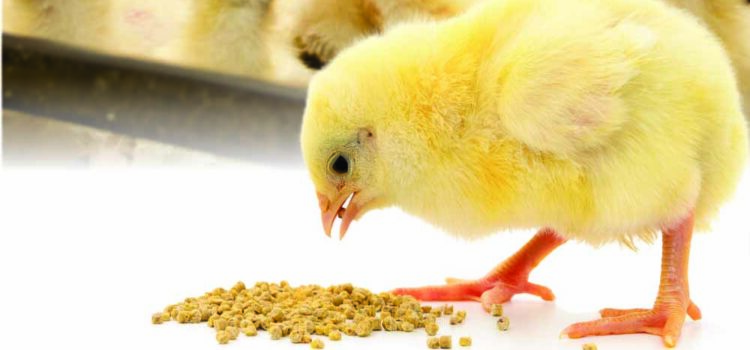Feeding broiler chickens with different forms of Tanzania-type diets supplemented with microbial enzymes can have various effects on their growth performance, nutrient utilization, and overall health. The inclusion of microbial enzymes in broiler diets aims to enhance the digestibility of feed ingredients and improve nutrient utilization, thereby maximizing growth and productivity. When considering different forms of Tanzania-type diets, which typically consist of a mixture of grains, oilseeds, and protein sources, the addition of microbial enzymes can be beneficial. These enzymes, such as proteases, amylases, and cellulases, aid in the breakdown of complex macromolecules like proteins, starches, and fibers, respectively. This enzymatic action helps to release more nutrients from the feed, making them more accessible for digestion and absorption by the chickens.
A researchers from Sokoine University of Agriculture (SUA), Morogoro, Tanzania; Tanzania Livestock Research Institute (TALIRI); University of Khartoum, Sudan; Federal University of Technology, Nigeria; University of New England, Australia and Fiji National University, Fiji, conducted a study to assess the effect of feed form and microbial enzyme supplementation on performance, endogenous enzyme activities and nutrient digestibility in broiler chickens fed Tanzania-type diets. A total of 480 day-old Ross 308 broiler chickens were allocated to a 2 (mash or pellet) × 4 (no enzyme, Axtra XB, Quantum Blue or Axtra XB + Quantum Blue) factorial arrangement, in a
completely randomized design with 10 birds per replicate. Feed intake (FI), body weight gain (BWG) and feed conversion ratio (FCR) were determined at 10, 24 and 35 days of age. Visceral organ weight was measured at 10 d and 24 d, and meat parts yield was assessed at 35 d.
 Feed intake (FI) was highest in birds fed the pelleted diets at 24 d and 35 d, and it was increased further when enzymes were supplemented individually and in combination. Body weight gain was comparatively higher in the birds fed pelleted diets. Enzyme supplementation was found to increase BWG at 24 d and 35 d. The FCR was reduced in birds fed the pelleted diets compared to the mash-fed birds. Birds provided with a combination of Axtra XB and QB responded with lower FCR.
Feed intake (FI) was highest in birds fed the pelleted diets at 24 d and 35 d, and it was increased further when enzymes were supplemented individually and in combination. Body weight gain was comparatively higher in the birds fed pelleted diets. Enzyme supplementation was found to increase BWG at 24 d and 35 d. The FCR was reduced in birds fed the pelleted diets compared to the mash-fed birds. Birds provided with a combination of Axtra XB and QB responded with lower FCR.
The relative weight of gizzard plus proventriculus, pancreas and small intestine were higher in birds fed on mash; however, the effect of enzymes was only observed on the pancreas at 10 d. The relative weights of most body parts (breast, thighs and drumsticks) were significantly higher in birds fed pelleted diets with inclusion of microbial enzymes. The dry matter (DM) digestibility was neither affected by feed form nor by enzyme supplementation while the digestibility of gross energy (GE), starch, protein, and fat were higher in birds fed pelleted diets than those on mash. Addition of microbial enzymes positively influenced the digestibility of all nutrients that were assessed. Endogenous enzyme activities at 10 d were higher in birds supplied with pelleted diets, except for sucrase, which was not affected by feed form. Exogenous enzyme inclusion in diets only affected the activities of sucrase and aminopeptidase at 24 d. The results indicated that both pelleting of diets and microbial enzyme supplementation increased FI and BWG and improved FCR in broiler chickens. The activities of pancreatic and most of the jejunal enzymes were increased by feeding of pelleted feeds, resulting in better nutrient digestibility.

It’s important to note that the specific response of broiler chickens to different forms of Tanzania-type diets with microbial enzymes can vary depending on factors such as enzyme dosage, diet formulation, bird age, and environmental conditions. Therefore, conducting on-farm trials and consulting with a poultry nutritionist is recommended to optimize the use of microbial enzymes in broiler production systems.
For more details: Click here
Chang’a, E.P., Abdallh, M.E., Ahiwe, E.U., Al-Qahtani, M., Mbaga, S. and Iji, P.A. (2023). Response of Broiler Chickens Fed Different Forms of Tanzania-type Diets with Microbial Enzymes. European Journal of Agriculture and Food Sciences. https://doi.org/10.24018/ejfood.2023.5.4.695
The Department of Animal, Aquaculture, and Range Sciences
The College of Agriculture, Sokoine University of Agriculture
Share this page

